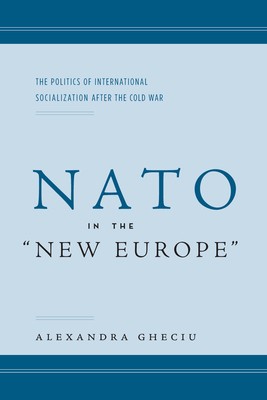
- We will send in 10–14 business days.
- Author: Alexandra I Gheciu
- Publisher: Stanford University Press
- ISBN-10: 0804751617
- ISBN-13: 9780804751612
- Format: 16 x 23.7 x 2.6 cm, hardcover
- Language: English
- SAVE -10% with code: EXTRA
Reviews
Description
In recent years, the question of the post-Cold War NATO, particularly in relation to the former communist countries of Europe, has been at the heart of a series of international reform debates. NATO in the New Europe contributes to these debates by arguing that, contrary to conventional assumptions about the role of international security organizations, NATO has been systematically involved in the process of building liberal democracy in the former communist countries of Central and Eastern Europe.
The book also seeks to contribute to the development of an international political sociology of socialization. It draws on arguments developed by political theorists, sociologists, and social psychologists to examine the dynamics and implications of socialization practices conducted by an international institution.
EXTRA 10 % discount with code: EXTRA
The promotion ends in 16d.11:53:40
The discount code is valid when purchasing from 10 €. Discounts do not stack.
- Author: Alexandra I Gheciu
- Publisher: Stanford University Press
- ISBN-10: 0804751617
- ISBN-13: 9780804751612
- Format: 16 x 23.7 x 2.6 cm, hardcover
- Language: English English
In recent years, the question of the post-Cold War NATO, particularly in relation to the former communist countries of Europe, has been at the heart of a series of international reform debates. NATO in the New Europe contributes to these debates by arguing that, contrary to conventional assumptions about the role of international security organizations, NATO has been systematically involved in the process of building liberal democracy in the former communist countries of Central and Eastern Europe.
The book also seeks to contribute to the development of an international political sociology of socialization. It draws on arguments developed by political theorists, sociologists, and social psychologists to examine the dynamics and implications of socialization practices conducted by an international institution.


Reviews